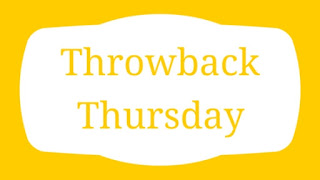Top Ten Tuesdays are hosted over at
The Broke and the Bookish. This week's topic is Ten Books On My Spring TBR (To Be Read list.) As you may know,
I no longer have a To Read list, but that doesn't stop my head from squirreling away titles in its dark recesses, and I've also posted short specific lists as part of past Top Ten Tuesdays, and I may also have a few scraps of paper on which I've written titles I don't want to forget about.
My list is a mix of new releases and books from last year that I still haven't gotten to. It doesn't even include books from my TBR Pile Challenge or Bardathon Challenge or those I have to read for book groups, so I'm unlikely to read all of these this spring, but in a perfect world I would.
1.
Wild Swans by Jessica Spotswood
I was dying to read this as soon as I heard it was going to exist, and I am so happy I only have to wait another couple of months until its May release. I loved the Cahill Witch Chronicles, which began with
Born Wicked, and I will read whatever she writes until the end of time, amen. (Cheater 1.5: She also just edited an anthology called
A Tyranny of Petticoats, which I also want to read.)
2.
Dreamland: The True Tale of America's Opiate Epidemic by Sam Quinones
A friend highly recommended this in a made-him-really-angry kind of way. After reading
The New Jim Crow, I am up for reading more about what is wrong with America. Plus, I keep hearing about more and more people dying of heroin overdoses - it is truly an epidemic right now, and it's not confined to cities or to a certain type of people. This is an issue I just want to learn more about.
3.
A Little Life by Hanya Yanagihara
I keep going back and forth on this one, mostly because it's over 700 pages, but I think I've firmly settled on wanting to read it. It's been nominated for lots of awards, which I wish didn't sway me, but it does.
4.
Uprooted by Naomi Novik
A young adult fantasy fairy tale story isn't the kind of book I'm generally drawn to, but I keep hearing such great things about it, and I love the cover art.
5.
Sweetbitter by Stephanie Danler
Although it's not out until late May, I heard about this months ago on the
Books on the Nightstand podcast. Set in a New York restaurant, the description doesn't sound terribly special to me now, but I was so taken by what I heard on the podcast (even though I don't recall specifically what that was) I still plan to read it.
6.
Sleeping Giants by Sylvain Neuvel
I'm pretty sure this book, out in April, was mentioned on that same podcast episode. A young girl falls through the earth in South Dakota, landing in what appears to be a giant metal hand. Later she becomes a physicist studying that very same hand, where it came from, and what it means. This just sounds so unique and mysterious!
7.
Level Up by Cathy Yardley
A contemporary romance about video game designers that I heard about on the
Dear Bitches, Smart Authors (DBSA) podcast. They loved it! It's not often that an entire episode of the podcast is devoted to one book, but apparently this self-published new adult romance really captures tech culture, and especially what it's like to be a woman in this male-dominated profession.
8.
Clockwork Samurai by Jeannie Lin
It's been over a year since I read
Gunpowder Alchemy and I'm hoping I will remember enough to enjoy the sequel, which I downloaded a few months ago and still haven't read. Although my review at the time wasn't stellar, I really loved the setting and the adventure in the story and have been thinking about it ever since.
9.
Grunt by Mary Roach
I just won a galley of her forthcoming book that comes out in June, and I'd really like to read it before it comes out. This one is all about how science prepares soldiers for the day-to-day realities of their jobs. It sounds fascinating!
10.
City of Mirrors by Justin Cronin
I really wish I thought I'd have time to re-read the first two before starting on the finale to this excellent series. But alas, these books are really long. I can't not finish the series though.
I'm unlikely to read all of these this spring, but I hope to at least read them all this year. What about you? What's coming up on your reading list in the next few months?

























